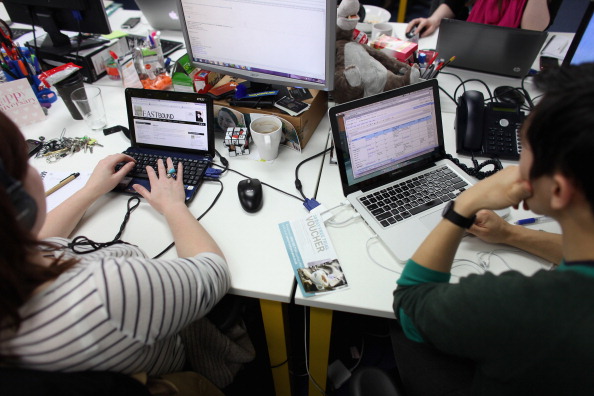Coronavirus: Fleet-of-foot fintech firms will play a part in the recovery

As coronavirus-hit nations come close to hitting their peaks, and some soften their social distancing rules, the time has come to look ahead to the prospect of recovery.
In that respect, the letters V, U, W and L will become highly significant in the coming months. The shape of economic recovery is one of the most important unknowns left in the coronavirus crisis.
So far, the UK Government’s attention has rightly focused on galvanising our medical and economic institutions into action – the NHS; banks; supermarkets; manufacturers; local authorities and other public bodies.
But soon that attention will turn to the wider business community. The real economy needs actors that can support commercially-sound, sustainable growth.
In that respect, there is undoubtedly a role for the fintech community to play.
Fintech is about driving three things: speed, simplicity and convenience. Those will be three of the most sought-after qualities as we try to wean the nation’s businesses off their government-sponsored crutches.
Speed is vital at the moment. The UK Government and various other bodies are already signalling their support for fintech solutions to help SMEs – but where are those solutions? Where is the voice of technology? More importantly, what evidence is there of speed in the economic response so far?
The major banks are also the major funders of business so it is right that they are on the front line of the Government’s response to this crisis.
But when we move from response to recovery, it will be vital not to rely on traditional approaches to the same old problems.
Fintech launches continue despite coronavirus, and investment continues to come the sector’s way, which is a sign both of our nimbleness and sustainability. From allowing consumers to negotiate debts to transaction banking services, smart financial aggregators and SME lending platforms, new ways of attacking old problems continue to shape how fintechs are supporting business.
But could more be done to specifically address the impact of coronavirus on the economy?
We asked ourselves that question and it forced us to change our entire approach to business, almost overnight. We were convinced bePayd could take up some of the strain felt by banks as they work through the details of the Coronavirus Business Interruption Loan Scheme (CBILS) as well as offer support to the businesses that do not qualify – but not without change.
Now, we have a financial model that means we can offer our service to businesses at cost; now, we have a technology model that requires zero integration with customers’ systems – in a virtual economy, ‘plug in’ products are the only way to make progress.
These changes required our developers to work around the clock. Both were achieved so that we could reach out to government and offer our support, which we have now done. We can help to unlock as much as £212.8 billion in working capital for UK SMEs, who are desperate for cash. We want to contribute to the national effort to save businesses and livelihoods.
The UK Government has told us it seeks solutions that can help, but it is incumbent on the fintech community to step up to this challenge. The new ‘normal’ brings huge constraints to business and most fintech solutions would not have foreseen those – so they will need to adapt, too.
The UK’s financial systems are bound to be key battlegrounds in the months to come. If we are to recover the economy, improving cashflow and servicing or accessing debt will be vital calling cards in pursuit of stability.
Open banking, cloud accounting and other forms of technology that open up data and enable speed and simplicity to flourish could help to solve new problems created by coronavirus.
The economic recovery will not be predictable. Whether V, U, W or L-shaped, much may depend on whether we can adapt to change. To make that happen, we must bring fintech solutions into the mainstream response to this most difficult of crises.